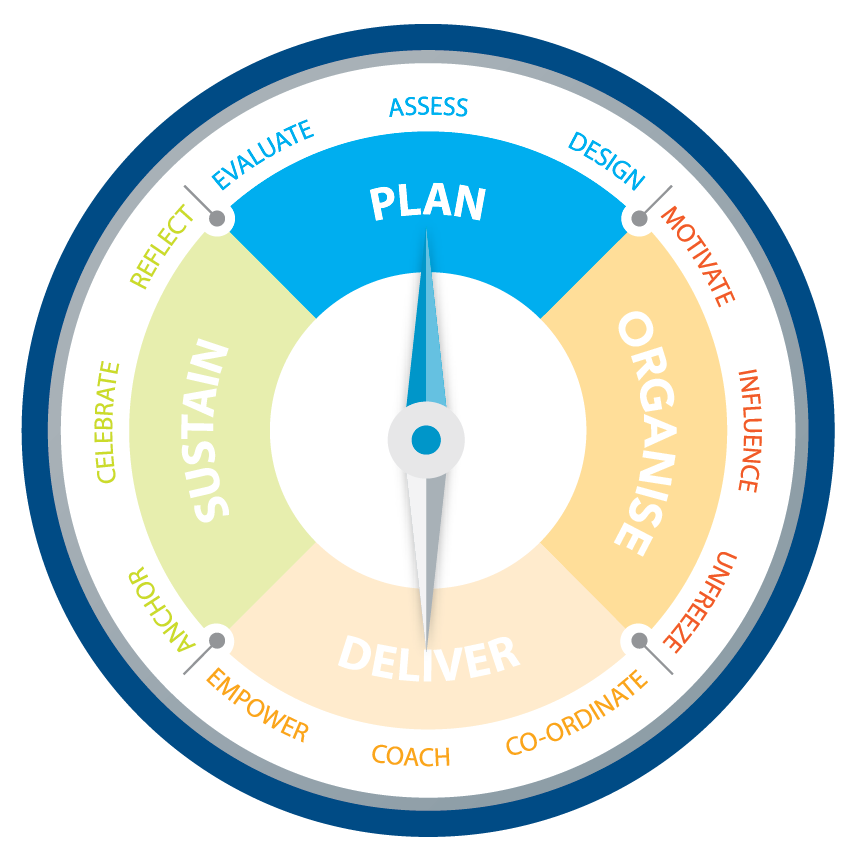
Historical change
The change-culture of a team or organisation is developed over time based on previous history and experience of change.
Take the time to identify and discuss the success stories of similar change initiatives that have happened across the organisation.
This will help to you to effectively plan and position the change.
Questions that might assist include:- How did other changes happen in the organisation?
- What made similar implementations successful?
- How did the participants / leaders respond to overcome the challenges?
- What mistakes did they make and how can these be avoided?
- Is there a Lessons Learned or Innovations register that we can look at?
- What projects or initiatives are currently underway that might help understand this project?
Change Readiness Surveys
Getting a base line of how your team is responding to the change initiative allows you to measure the progress as you progress
through your project. It allows you to focus on particular groups or issues within the teams as you conduct follow-up change
readiness surveys. Change readiness surveys vary in approach and style. From a change leadership viewpoint, measuring where
each of your team members are in the change cycle is a good marker of progress.Sandar’s Change Readiness survey template provides sample questions and tools to plug in the results and graphically view the results.
Scanning the organisational environment
Environmental scanning is one of the essential components of any business strategic plan; it is also a key activity in a change
leader's skills, enabling him or her to consider how change(s) will impact his or her team, and what approach should be taken to
lead a change. One model is PESTEL, which looks at the political, economic, socio-cultural, technological, environmental and legal
factors that need to be dealt with in leading a change.Regardless of how you consider the change environment, a solid understanding of your people and their past and current organisational environment will help you lead them through the change.
|
Spend some time doing research on similar changes within different organisations and industries.
|
Resources:
● Change Readiness Survey Sample (515kB download)
● Meeting Record of Conversation Template (47kB download)
● Organisational Politics, Culture, and Change Management White Paper (63kB download)
| ©1999 - 2020 Sandar Management Services Pty Ltd |
